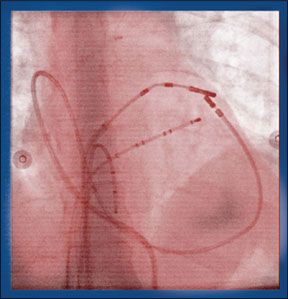For patients with atrial fibrillation (AFib), a condition in which the heart beats irregularly, medication can often return the heart to its normal rhythm. But when medication is ineffective, AFib may require ablation-a procedure that entails going into the heart and stopping the abnormal electrical impulses that create the irregular heartbeat. The most common method of performing this procedure is called catheter ablation, in which a catheter-a thin, flexible tube-is threaded to the heart through the femoral vein via a small incision in the leg or groin. However, for patients who are not candidates for the procedure or in whom it is not succesful, another method called epicardial ablation is emerging as an alternative. "Patients with left atrial enlargement, long-standing persistent AFib, and anatomic barriers like abnormal veins in the leg are good candidates for epicardial ablation but not catheter ablation," says Marc Gillinov, MD, a cardiac surgeon at Cleveland Clinics Heart & Vascular Institute. "While epicardial ablation is performed on a small percentage of people with AFib, its a small percentage of a large number of people who otherwise have no treatment options."
To continue reading this article or issue you must be a paid subscriber.
Sign in






